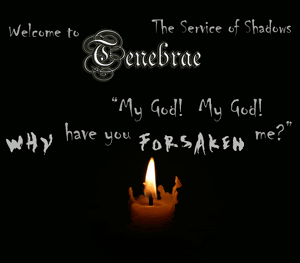
I used to go to a centering prayer group at my home church, Westminster Presbyterian in Rockford, IL. Usually, when we gathered we would open with a reading. I think one of Ed’s favorite books was Thomas Keating’s, The Mystery of Christ: The Liturgy as Spiritual Experience. I miss sitting with that group’s sharing and silence. So I thought I’d share a relevant passage from Keating with everyone who reads this (p 61-62).
***************
”Father, How Can I, Your Son, Become Sin?”
Your attitude must be Christ’s:
though he was in the form of God
he did not deem equality with God
something to be grasped at.
Rather, he emptied himself
and took the form of a slave,
being born in the likeness of men.
He was known to be of human estate,
and it was thus he humbled himself,
obediently accepting even death,
death on a cross! [Phil. 2:6-9]
To become sin is to cease to be God’s son—or at least to cease to be conscious of being God’s son. To cease to be conscious of being God’s son is to cease to experience God as Father. The cross of Jesus represents the ultimate death-of-God experience: “My God, my God, why have You forsaken me?” The crucifixion is much more than the physical death of Jesus and the emotional and mental anguish that accompanied it. It is the death of his human self. The crucifixion was not the death of his false self because he never had one. It was the death of his deified self and the annihilation of the ineffable union which he enjoyed with the Father in his human faculties. This was more than spiritual death; it was dying to become God and hence the dying of God: “He emptied himself, and took the form of a slave…accepting even death, death on a cross!” The loss of personal identity is the ultimate kenosis.
In the crucifixion, his human self disappeared and with it the loss of his experience of who God is. In his resurrection and ascension, Jesus discovered what God is. The dismantling of the false self and the inward journey to the true self is the first phase of this transition or passing over. The loss of the true self and the experience of no-self is the second phase. The first phase results I the conscious of personal union with the Trinity. The second phase consists in being emptied of this union and identifying with the absolute nothingness from which all things emerge, to which all things return, and which manifests Itself at That-Which-Is.








0 comments:
Post a Comment